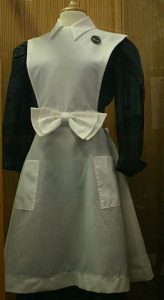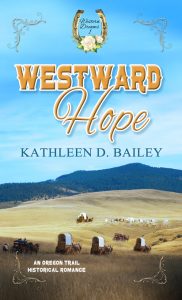I’m excited to welcome fellow Pelican Book Group author, Ramona K Cecil to Romancing History. She is a multi-published and award-winning author of historical romances. Ramona’s recent release, The Time for Healing, is set in Shawnee territory in 1824 and released on August 7th.
Ramona has graciously offered on eBook copy of The Time for Healing to one Romancing History. Make sure to comment below to enter the drawing!
Before we chat with Ramona, here’s a little bit about her book.
About the Book
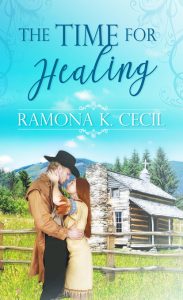 Will their love be the last casualty of the Pigeon Roost Massacre?
Will their love be the last casualty of the Pigeon Roost Massacre?
Ginny Red Fawn McLain is determined to hold fast to her adoptive Shawnee culture despite her sudden reentry into her white birth family. She rejects their Christianity, fearing the tenets of the white man’s religion will prevent her from practicing as a Shawnee medicine woman. But her heart refuses to shun her uncle’s young friend and apprentice minister, Jeremiah Dunbar.
Jeremiah Dunbar has never doubted what he would do with his life—he’d follow in his father’s footsteps as a minister of the Gospel. But a mission trip west to the Native American tribes makes him begin to question his future plans. At the discovery of his fellow missionary’s long lost niece living among the Shawnee, Jeremiah is immediately smitten. But unless Ginny Red Fawn McLain joins Christ’s fold—something she adamantly resists—Jeremiah will have to choose between the woman he loves and the work God has called him to do.
Ginny and Jeremiah struggle to discern the will of God, the Great Spirit, for their lives, and if fitting their love into His plans is even possible. Dreams and cultures clash amid an atmosphere of contempt and distrust, threatening to make their love the last casualty of the Pigeon Roost Massacre.
Amazon B&N Pelican Book Group Thrift Books Book Depository
Author Interview
Fast Five
- Dogs or Cats? Cats. Don’t get me wrong, I do like dogs, but my mother was deathly afraid of dogs, so we had cats for pets growing up. Cats also take less care.
- Coffee or Tea? Coffee—extra light. I need at least a couple cups in the morning to get going. If coffee is offered it’s often my drink of choice.
- Mexican or Chinese Food? Mexican. I’ve never much cared for Asian cuisine, but offer me a plate of nachos or a beef burrito and I’m there.
- Night Owl or Early Bird? Definitely night owl. For years my husband worked a late second shift. We got used to getting up late—Hubby calls it “cruising into the day,” and not hitting the sack until midnight.
- I Love Lucy or Get Smart? I Love Lucy. It was a must-watch show in my childhood. Lucy and Ethyl Mertz, what a hoot!
Author Q&A
RH: Hi Ramona. Welcome to Romancing History. Please tell us a little bit about yourself.
RKC: I’ve been writing creatively since about the age of four when I began to compose poetry. Both my parents dabbled in writing poetry and my mother wrote two unpublished novels. I was the middle child of three and the only one of my siblings to get the writing bug. Between the mid 1980s and 1990s I sold over eighty of my verses to leading publisher of Christian gift items. I still get emails from fans of those verses. I now write historical romance novels/novellas for the Christian market. My stories are set in the 1800s and early 1900s. My first book, Larkspur, was published in 2006 as a result of winning first place in a contest sponsored by a publishing company. Since then, I’ve had fourteen more traditionally published novels/novellas. When I’m working on a project I set a goal of 1000 words a day. I always pray for guidance before I begin writing and I finish my prayer with “Give me this day my daily thousand words.”
RH: Wow, I had no idea you’d published fourteen novels or novellas. That’s a huge accomplishment. Now tell us something unusual about yourself. Something not in the typical back of the book author bio—something quirky.
RKC: I don’t think I’m especially picky in general, but I am picky about bread. I don’t like my bread squished. My husband won’t even handle a loaf of bread for fear of squishing it. He says he’d just as soon handle a hand grenade.
RH: That’s funny, but seriously, who wants squishy bread? Fans of romantic fiction love a cute meet. How did you and your significant other meet?
RKC: My husband and I knew each other in high school—he was a couple years ahead of me—but we never dated then. A couple years after I graduated high school we re-connected at a church ice cream social. He came to partake and I was taking the donations. He said “So you’re the money changer?” I wanted the ground beneath me to open up and drop me out of sight. After he enjoyed his ice cream he came back and asked for my phone number. We began dating and six months later we were married. That was forty-seven years ago.
RH: That’s a cute story. I love how people meet their spouses, usually during some mundane thing and they have no idea their life is about to change forever. And, 47 years! That’s wonderful! Which 3 words describe the type of fiction you write?
RKC: Christian, historical, romance
RH: That is exactly the type of fiction I love to read—Christian historical romance! What has God taught you along your writing journey?
RKC: Patience, persistence, and handing everything over to Him. Years ago after a particularly tough rejection, I considered quitting writing (as if I could). While walking on my treadmill I prayed and asked God to let me know if I should continue to pursue a writing career. A moment later a strange sensation came over me. The best way I can describe it is the sensation of water pouring over me, but I didn’t get wet. I took that to mean God wanted me to keep going, so I did. About a year later my first book was published.
RH: Writing is a tough business. I’m so glad you didn’t give up writing. I too have learned so much about perseverance, accepting criticism and rejection, and God’s faithfulness to the calling He has given me. What was the inspiration behind your recent novel?
RKC: The Pigeon Roost Massacre, a tragic event that happened in 1812 about thirty-five miles south of where I live. On a calm September afternoon in 1812, just before sunset, a little pioneer village in the southern part of Indiana Territory is set upon by hostile Shawnee. Twenty-four settlers including women and children were killed. It is said that two children were taken captive by the Shawnee. The story is told, though also refuted, that one of the captured children—a little girl—was found many years later west of the Mississippi River by her uncle who was a Christian missionary to the Indians. When I first read the story, my writer’s mind immediately went to “I wonder what would have happened if. . .” That was my “jumping off” point and the result became The Time for Healing.
RH: I’m quite the little history nerd and I love it when real events inspire fiction. If you were to pick a particular Scripture verse as the theme of your novel, what would it be? Why?
RKC: Ecclesiastes 3:3 (KJV) “A time to kill, and a time to heal; A time to break down and a time to build up” I think this verse fits the story to a T, especially the first phrase.
RH: Yes, based on what you shared above about the Pigeon Roost Massacre, I’d have to agree with you. Fans of historical fiction & romance love the details that your research provides. Was there anything particularly interesting that you learned while researching your book that you were able to use or not use in your story that you’d like to share?
RKC: My heroine, Ginny Red Fawn McLain, is a Shawnee medicine woman, so I learned a lot about the Shawnee culture. One research source I used was Kohkumthena’s Grandchildren The Shawnee, written by Dark Rain Thom, a Shawnee medicine woman and wife of author James Alexander Thom. Mr. and Mrs. Thom live a couple counties northeast of mine in southern Indiana. One interesting bit of Shawnee culture I learned about is the “woman’s button.” The woman’s button consisted of a smooth round rock encased in leather attached to a leather cord. A young woman carried the “button” on her waist belt. If a too-ardent suitor plied her with unwanted attention she’d whip out her “button” and bop him on the head to change his mind.
RH: I’ve never heard of the “woman’s button” before. How fascinating! I hope you were able to incorporate that into your story. Would you like to share something that didn’t make it into the final copy (deleted scene).
RKC: I wrote a prologue to the story, but later decided not to use it in order to make the story more active. I loved the prologue though, so I kept it on my computer. Here it is:
Scott County Indiana, September 3, 1812
“It’s time for you to feed the chickens and bring in the eggs, Ginny.”
Ginny blew out a long breath and dropped her rag and cornhusk doll to the floor. It was a good baby. No matter what she did with it, it never cried. She walked, but not too fast, across the room to the fireplace where Ma held out a bucket half full of shelled corn while bouncing Ginny’s squalling baby brother in her other arm. “Maybe if the house is quiet, I can finally get Joe to sleep.”
“Yes, Ma.” Ginny wanted to say that it was Joe making all the noise, not her. But the way Ma’s mouth was all puckered up liked she’d bit into a green persimmon told Ginny she was in no mood for sass.
Not wanting to risk a switching, Ginny kept quiet and took the bucket with both hands. The rope handle scratched her palms while the bucket’s weight pulled hard on her arms, making them burn. She wouldn’t complain. Feeding the chickens gave her a good excuse to get out of the house and away from Joe’s crying that made her ears hurt.
At least today she wouldn’t have to shell the corn. When she pushed the grain away from the soft red cobs, the rough, dry kernels always dug into the heels her hands, making them sting.
Before baby Joe came she had less work to do and more time to play. Ma seemed to know that Ginny wished Joe hadn’t come because she’d say things like “You’re a big sister now, all of six years old. ’Fore you know it, you’ll be growed.” As if that would make her like her brother better. It didn’t. Maybe she’d like him better when he got old enough to play with her, but right now she’d rather have her doll.
Ma followed Ginny to the cabin’s open door. “And don’t rip your dress or get it dirty” she said over Joe’s cries. “Uncle Zeb and Aunt Ruth are comin’ for supper.”
“Yes, Ma.” Nodding, Ginny lugged the bucket down the two stone steps and headed toward the pine trees where the chickens would roost for the night. She liked this time before supper when the sunshine poked through the pine grove around their cabin. It looked like melted butter the way it poured through the trees and settled in yellow puddles in the dirt. She liked the way things smelled this time of day, too. The pine needles smelled stronger, and she could even smell the creek water, fresh and cool beyond the trees where bullfrogs had already started their croaking. They sounded like they had a bad case of the hiccups, only deeper. She paid attention to things like that. Aunt Ruth said that was why Ginny would do well when she went to school.
“Chick, chick, chick,” she called.
Their wings flapping, the chickens appeared from the brambles and the shadows behind the trees. Ginny liked the colors of the chickens, some black and white speckled, some all snowy white, and some a reddish brown color that almost matched the color of Ginny’s hair. Their eggs were different colors, too. Some white and some brown. She was eager to see how many she might find in the thicket where the chickens had made their nests against the trunk of an old fallen tree. She’d have to be careful to get all the eggs and not leave any behind for the raccoons and other varmints to steal.
She grinned down at the plump birds as they strutted and clucked and pecked at the dirt. “Puck, puck, puck, puckaw!” Cocking their red-crowned heads sideways, they looked up at her with eyes like big black peppercorns and clucked louder, begging for the corn.
Ginny grabbed a handful of kernels from the bucket and scattered them over a patch of bare ground, too shaded for grass to grow. While the chickens pecked at the corn, Ginny jabbed the air with her finger, practicing her counting like Aunt Ruth had taught her.
“One, two, three. Stand still so I can count you. Four, five, six. Six hens and one, two roosters.” She especially liked the roosters. They stood taller than the hens and puffed out their big chests when they walked. The combs on their heads and the dangly things under their chins were bigger and brighter red than the ones on the hens, and they had sharp toenails on the backs of their legs that could scratch her if she wasn’t careful. But Ginny loved their brightly colored tail feathers that curled behind them and looked like little rainbows in the sunlight.
“That makes eight,” she said, proud of herself as she finished counting. At supper, she would show Aunt Ruth and Uncle Zeb how well she could count. Aunt Ruth would be proud of her, too. Ginny was glad Aunt Ruth was the school teacher. Even if Ma needed Ginny to stay home and help with chores and not go to school for another year or two, she would not get behind in her learning.
An owl hooted. It sounded close.
Ginny looked up into the pine boughs above her. She’d never heard an owl call while it was still this light. And Ginny paid attention to these things.
Another owl hooted, and then another. But the sound didn’t come from up in the trees. It came from near the ground over by the creek. Why would owls walk when they could fly? Pa said they liked to roost high in the trees and look down on everything.
Pa.
Pa should have been back from driving their cow, Sadie, home from the meadow where she liked to graze. The tallest pine tree’s shadow stretched across the yard and bent up against the cabin. Pa was always home before the shadow touched the cabin.
A scream came from inside the cabin, chilling Ginny like the time last winter when she fell into the creek. The sound froze her in place, and the bucket’s rope handle slipped from her fingers. Somehow she knew it was Ma that had screamed, but it didn’t sound like Ma. Joe wailed, but then he stopped right in the middle of his crying and everything got quiet. Joe had never stopped crying all of a sudden like that.
Ginny looked down where she’d dropped the bucket, spilling the corn in a yellow heap. She reached down to pick up the bucket, but someone grabbed her arm. She looked up and saw a man with red lines painted across his face standing over her. He didn’t have much hair, just a little in the back, and a large gray and white feather dangled from it. His chest was bare and large rings hung from his ears and nose.
She tried to scream like Ma had, but nothing came out.
RH: Wow, Ramona, that scene ended with a bang. Now I’m looking forward to reading The Time for Healing even more. Thanks for visiting with me and my readers this week.
About Ramona
Ramona K. Cecil is a poet at her core. She loves the Lord, her family, reading, writing, and
history, especially the history of her home state of Indiana. She’s a wife, mother, grandmother, poet, and author of fifteen historical romance novels for the Christian market. She and her husband of forty-seven years are empty-nesters with two grown daughters and three young-adult grandchildren. They make their home in Seymour, Indiana, the “small town” made famous in rocker John Mellencamp’s song of the same name. She began writing poetry at the age of four and has had over 80 of her inspirational verses published on a variety of gift items by a leading publisher of Christian gifts. In recent years her writing has shifted more to novels and novellas. With her love of Hoosier history, many of her stories are set in Indiana’s past.
You can connect with Ramona on GoodReads, Amazon, Twitter, Facebook or visit her website.
Giveaway**
This giveaway is now closed!
Congratulations to our winner, Judy Attebury!
Ramona is giving away one eBook copy of The Time for Healing. Ramona shared that one of her quirks is not liking “squishy” bread. To enter the drawing, please tell share one of your quirks in the comments below.

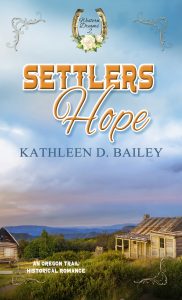

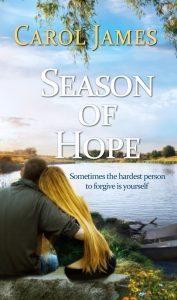

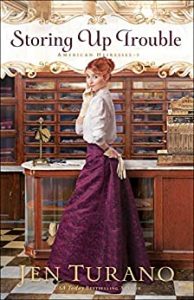
![Flights of Fancy (American Heiresses Book #1) by [Jen Turano]](https://m.media-amazon.com/images/I/51x4i6WWsvL.jpg) Miss Isadora Delafield may be an heiress, but her life is far from carefree. When her mother begins pressuring her to marry an elderly and uncouth duke, she escapes from the high society world she’s always known and finds herself to be an unlikely candidate for a housekeeper position in rural Pennsylvania.
Miss Isadora Delafield may be an heiress, but her life is far from carefree. When her mother begins pressuring her to marry an elderly and uncouth duke, she escapes from the high society world she’s always known and finds herself to be an unlikely candidate for a housekeeper position in rural Pennsylvania.![Diamond in the Rough (American Heiresses Book #2) by [Jen Turano]](https://m.media-amazon.com/images/I/51nFD+Ed5KL.jpg) To save her family from financial ruin, Miss Poppy Garrison accepts an unusual proposition to participate in the New York social season in exchange for her grandmother settling a family loan that has unexpectedly come due. Ill-equipped to handle the intricacies of mingling within the New York Four Hundred, Poppy becomes embroiled in one hilarious fiasco after another, doomed to suffer a grand societal failure instead of being deemed the diamond of the first water her grandmother longs for her to become.
To save her family from financial ruin, Miss Poppy Garrison accepts an unusual proposition to participate in the New York social season in exchange for her grandmother settling a family loan that has unexpectedly come due. Ill-equipped to handle the intricacies of mingling within the New York Four Hundred, Poppy becomes embroiled in one hilarious fiasco after another, doomed to suffer a grand societal failure instead of being deemed the diamond of the first water her grandmother longs for her to become.

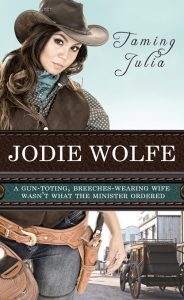

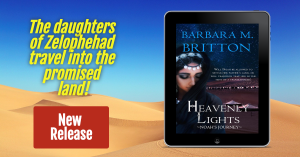
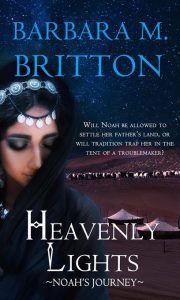


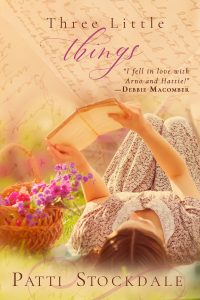



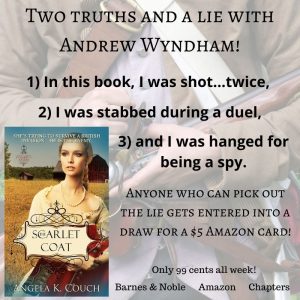
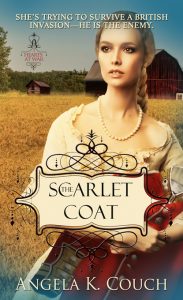
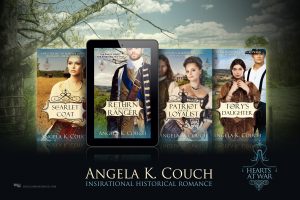

 Title: Serving Up Love: A Four-in-One Harvey House Brides Collection
Title: Serving Up Love: A Four-in-One Harvey House Brides Collection